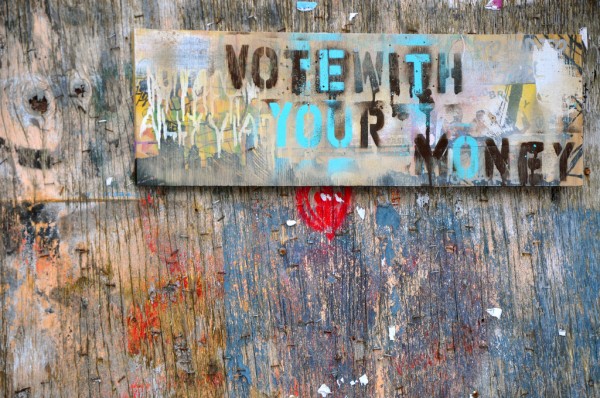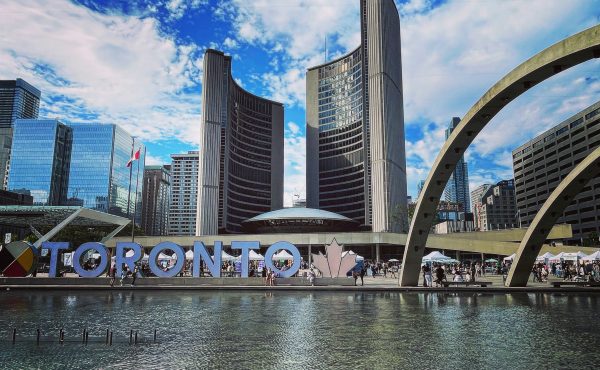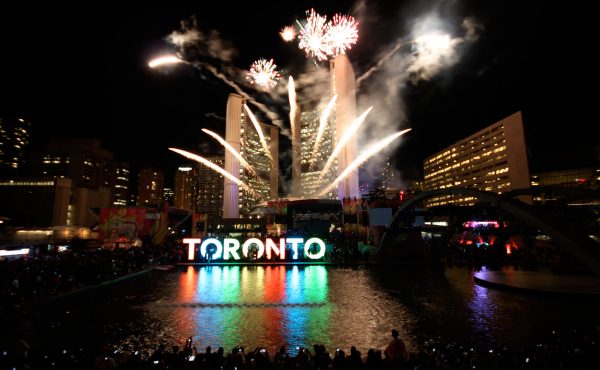Without question, last week’s vote on the ranked-ballot bill proposed by Scarborough Liberal MPP Mitzi Hunter represented a huge victory for the reformers at RaBIT Toronto, who have succeeded in racking up an impressive series of wins for a game-changing improvement to local politics.
Yet I’m concerned that the obvious stage-management around the tabling of this private-member’s bill suggests that its arrival on the floor of the provincial legislature has more to do with pre-election positioning by the Liberals than a genuine commitment to a coherent governance reform agenda.
Let’s skip, for the moment, all the over-used bromides about Kathleen Wynne’s long-standing commitment to local government blah blah blah. Rather, consider the architecture of what’s transpired:
First, as has been noted elsewhere, Bill 166 — which was tabled in late February and passed second reading last week — must still run the gauntlet of a potentially time-consuming standing committee review, plus third reading and royal assent. Does all this happen before a spring election? Unlikely. It’s probably going to die on the order paper, and then we have to wait for a new session to see if this idea gets back on the next government’s legislative agenda.
In other words, the sub-textual messaging is that if you are a progressive-minded Toronto voter who happens to know and care about ranked ballots, vote for the Liberals because they may — may — deliver reform re-elected. Cynical? Yes. But I’d say this government has done plenty to deserve our skepticism.
Second, the government has opted to allow ranked ballots to surface in the form of a private member’s bill, as opposed to a government bill. In terms of the optics, I suppose the governance reform story-line becomes more compelling if the government in power demonstrates that change can, in fact, come from the caucus. (There’s a somewhat similar narrative arc with the federal election reform law.)
But let’s not fool ourselves into thinking that Hunter, seized of an urge to reform Toronto elections, tabled 166 without the express consent of the premier’s office. Wynne, who turned up at the after-party, obviously wants to be associated with this project, which makes me wonder why she didn’t promote the ranked ballots reform to the status of a government bill. Again, it seems, from where I sit, that the process has been meticulously scripted, with a target audience in mind.
Third, the legislation, as currently worded, is not prescriptive. As Section 2.1 states, “The City may pass a bylaw that adopts a ranked ballot voting system…” (emphasis added).
Why not “shall?”
It’s a serious question. I know that Dave Meslin and the RaBIT team are in this game for the long haul. But the political reality they face is that Bill 166 is merely necessary but definitely not sufficient. If the bill passes, the next council could, in theory, choose to proceed with ranked ballots. But confronted with the reality of enacting a major overhaul in local elections, with all the attendant uncertainty and upheaval, the councillors may also opt to duck and weave and procrastinate. Council has always struggled to reform its own rules.
I’d rather see the Liberals decree this change, and then the City can move ahead with preparing for 2018. Instead, we face the prospect of more re-litigating. (It’s worth noting that the Liberals this week also announced that they’ll be pressing ahead with a bill that gives provincial ombudsman Andre Marin extensive powers to investigate municipalities, including the City of Toronto, and school boards. There’s no “may” in that move. The powers will be mandated, end of sentence.)
Lastly, I’d argue that the attention around ranked ballots serves to overshadow other crucial governance/democratic reforms in our municipal system.
For example, will ranked ballots short-circuit the advantage of incumbency for ward councillors? Possibly, but I’d say it’s not likely. At the federal and provincial level, the name recognition premium for any sitting elected official is counter-balanced by the cyclical shift in power that occurs in most legislative bodies. But in a party-free municipal system, incumbency is not merely a massive electoral advantage for individual politicians; it also represents a systemic obstacle to democratic renewal for the council as a whole.
We can seriously ask why any councillor should hold office for more than three terms. If the Liberals genuinely want to revive municipal democracy, they should be thinking about incumbency restrictions as an adjunct to ranked ballots.
There’s one other thread to this debate, and it reaches into the realm of municipal policy-making. For all sorts of historical reasons, the Greater Toronto and Hamilton Area (GTHA) lacks an upper tier governance body mandated to address regional issues, such as economic development and transit/transportation. Anne Golden recommended a Greater Toronto council almost twenty years ago, and still thinks it’s the best solution to managing a highly integrated metropolitan area crisscrossed by increasingly redundant municipal borders. (She’s correct.)
The unrelieved chaos of the GTA’s transit debate is specifically symptomatic of the dearth of a regional body with the authority and resources to act. That structural shortcoming should also be part of the debate over how to make local government in the Toronto area more democratic, accountable and responsible. But apart from some vague promises to appoint a few politicians to the Metrolinx board, the Liberals have demonstrated no appetite for these kinds of fixes.
The point is, if the Liberals want to be viewed as championing reforms to municipal democracy, I’d like to see them articulate how the ranked ballots initiative fits into a broader tapestry of over-due change. But as it stands, Bill 166 mostly looks (to me, anyway) like a tactical move by Wynne’s Liberals to shore up her progressive flank in Toronto. The ballot, in other words, is still in their court.






5 comments
Great piece John! (as always).
A few comments:
1) I think it’s appropriate for this legislation to be non-prescriptive. You have to keep in mind that Toronto City Council didn’t ask the province to change Toronto’s voting system – they only asked for permission. Here’s the original motion: “City Council request the Ontario government amend the Municipal Elections Act to authorize the use and establish the framework of Ranked Choice Voting to permit Toronto City Council to use ranked ballots and instant runoff voting in municipal elections.”
Mitzie’s bill is a direct to that response, “authorising the use”.
2) The other reason the bill has to be non-prescriptive, is to ensure that FairVote Canada is on board. FVC has campaigned against RaBIT every step of the way, because they prefer a different voting system called PR-STV (with mega-wards of 200K voters). Their opposition has had a terrible effect on our campaign, slowing us down by 2 or 3 years. (I think we would already have ranked ballots, possibly even for the 2014 election, if FairVote wasn’t campaigning against our reform). Anyway, Mitzie’s bill allows from ranked ballots, but DOESN’T specify if they have to be used in single-member districts (as we currently have), or in FairVote’s mega-wards. So FairVote is happy with this bill, because it opens the door to PR-STV. And if FairVote is happy, then I’m happy.
3) Incumbency. I think ranked ballots in TO would have a devastating effect on incumbents. I think it’s a myth that Councillors win on “name recognition”. The truth is, that MANY Councillors, win with less than 50% of the vote – DESPITE all the advantages of name recognition. In other words, even after they spend four years in office (or 8, or 12) the majority of their constituents vote against them. But… they win anyway. Because the ONLY vote you can’t “split”, is the vote for the status quo. If 60% want change, and 40% want the incumbent, then the incumbent is toast in a two-way race. But if four people run against him/her, the 60% splits, and you can win with 40%. Sadly, this happens all the time. With a ranked ballot, the vote for change can unify under one candidate, organically.
4) I totally agree that ranked ballots are not a cure-all for democracy. It’s just one piece of the puzzle. I’m not a fan of term limits (I think they are undemocratic… I think voters need more choice, not less) but I think there are lots of other reforms worth looking at: lower voting age, online voting, weekend voting day, voting on a holiday, participatory budgets, a lower tier of neighbourhood councils, using grants instead of rebates for campaign contributions, and getting rid of the position of ‘mayor’ entirely.
5) I don’t blame you for being skeptical about Bill 166. But it’s all we’ve got right now. We’ve seen private member’s bills pass in less than 45 days. It won’t be easy, but I’m hoping we can get this to final reading.
And speaking of reading, if you’ve read this whole comment: Thank you! Please consider joining our campaign for Bill 166: http://www.123toronto.ca/bill_166.htm
yours,
~ dave
I was not surprised to hear comments that Glen Murray had “gone rogue” once….but I was quite surprised when he did it again and again.
Clearly Kathleen Wynne with all her party and cabinet experience, could do something about this if she wanted to…but more likely she wants to have some “key” MPPs “going rogue” as and when it is necessary.
I only wish that I were confident that this government was devoting as much attention to the needs of the people of Ontario as they appear to be devoting to “looking good” … and this is coming from 20+ Years of following Ontario politics.
Cheers, Moaz
Term limits, or “incumbency restrictions” to borrow your euphemism, are a knee-jerk response. Term limits are, by their very nature, anti-democratic (who else shall we be told we cannot vote for?). Moreover, they are basically an admission that we in Toronto are incapable of having a sophisticated and engaged electorate and political culture – that we are essentially too stupid to be trusted to be given free rein to elect who we want to represent us at city hall. Mr. Meslin has far more eloquently explained above how ranked ballots undermine the benefits of incumbency, without resorting to voting controls like term limits, and how we should be looking at other reforms to further energize (rather than control) the electorate.
I agree with most of what you’re saying, except on term limits. They may be appropriate for the mayor’s seat, but I wouldn’t want them for councillors too.
There are definite problems that come with long-term incumbents and a lack of fresh blood, but term limits bring other issues. Local government, especially in a city as massive as Toronto, is complex and it takes a while for new councillors to find their feet. If an incumbent councillor is doing a good job representing her constituents, we may be much better off having her continue in that role instead of being forced to choose a new face that will spend his first year learning to navigate the rules, processes and bureacracy at City Hall, not to mention dealing with an army of lobbyists.
There’s already something of a revolving door between our councils/legislatures and the corporate world. Do we really want to increase the number of insiders who understand the ins-and-outs of City Hall coming back to lobby their former colleagues and their inexperienced replacements?
Usually a trial for a new system is done on a small scale. Ranked ballots should be tried in a small (and willing) municipality first. The only other alternative is to open ranked ballots to the entire Province. Making Toronto the test city makes no sense. It sound like we are hastily throwing away over a century of democracy just because people are upset that Ford was elected.